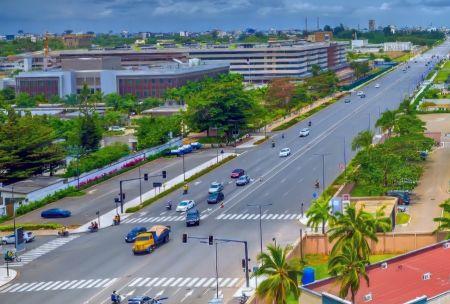
(Ecofin Agency) – The institution stresses that achieving sustainable and resilient economic growth in the longer term will depend on efforts to adapt to climate change. Without further investment in this area, average annual GDP losses could reach 19% by 2050.
Benin’s economy should grow by an average of 6.2% per year between 2024 and 2026, the World Bank estimated in the 2nd edition of its report on Benin’s economic outlook released on May 13.
According to the institution, this achievement will be the result of increased investment and the expansion of the Glo-Djigbé Industrial Zone (GDIZ), an industrial zone located 45 km from Cotonou and dedicated to the local processing of agricultural products such as cotton, cashew nuts, pineapple and shea nuts. Thw World Bank noted that fiscal consolidation efforts in 2023 have brought the budget deficit down to 4.1% of GDP, the lowest level since 2019, and down from 5.5% in 2022. This is due to an increase in total revenues of 0.7% to 15% of GDP, while public spending fell by 0.6% to 19.2% of GDP. Fiscal consolidation is set to continue in the medium term, with the budget deficit falling further to 2.7% of GDP by 2026.
Entitled “Adapting to Climate Change for Sustainable, Resilient Economic Growth”, the report mentioned, however, that the end of the gasoline subsidy in Nigeria in May 2023, supply chain bottlenecks following the closure of the border with Niger, and growing demand pressures have led to an increase in inflation to 2.8% in 2023, although this remains below the regional average of 3.7%.
Turning to the longer-term outlook for Benin’s economy, the World Bank notes that achieving sustainable and resilient economic growth in the decades ahead will depend on efforts to adapt to climate change. “In the absence of additional adaptation efforts, climate change could lead to increasing economic losses, with average annual GDP losses of up to 19% by 2050,” it stressed, indicating that priority investments in adaptation and resilience could significantly reduce poverty and enable almost half a million people to rise above the poverty line compared to a scenario where no policy measures were taken.
The report recommends strengthening actions in the agricultural sector, including adaptation of farming practices, forest restoration and investment in water resources.
It is also essential to address vulnerabilities in the healthcare system, particularly those exacerbated by climate change, in order to strengthen the resilience of health and education services and protect human capital. Building resilience to urban flooding and investing in resilient transport and digital infrastructures will also keep people and markets connected.









Comments